Recent decisions suggest courts are losing patience with those who bring dubious copyright infringement claims as part of their business models.
Back in May, I wrote about an overzealous copyright infringement lawsuit filed by Rachel Dolezal, the woman best known for mispresenting her racial background. The complaint raised concerns that Dolezal was using copyright law to purge the historical record of her controversial past, while seeking substantial monetary damages in the process.
The defendant, CBS Interactive, had a solid fair use defense, but never needed to assert it. That’s because just two days after the case was filed, Southern District of New York Judge Valerie Caproni took the matter into her own hands. She issued an Order to Show Cause, ordering Dolezal to file papers explaining why the case should not be dismissed based on the Copyright Act’s fair use doctrine. Dolezal never tried to defend her lawsuit, voluntarily dismissing it just a few days later without ever serving CBS with the complaint.
As it turns out, Judge Caproni was a bad draw for Dolezal. She’s the same judge who ordered notorious “copyright troll” Richard Liebowitz to attend a training course on how to manage his law firm and then explain how what he learned would help him avoid future sanctions. [Disclosure: I represented the defendant sued by Liebowitz in this case, although Judge Caproni issued these orders entirely on her own.]
Liebowitz apparently didn’t learn enough—at least not enough to avoid future sanctions. He’s since been suspended from practicing law in New York and various other jurisdictions. Last month, the Second Circuit Court of Appeals upheld both monetary and non-monetary sanctions against him.
Liebowitz is probably the best known example of a copyright troll, a moniker that one circuit court defined as a someone who brings “strategic infringement claims of dubious merit in the hope of arranging prompt settlements with defendants who would prefer to pay modest or nuisance settlements rather than be tied up in expensive litigation.”
But Liebowitz is certainly not alone, and there’s growing evidence that judges across the country are losing patience with plaintiffs (and plaintiffs’ lawyers) when their courts are used to support a business model that’s more about revenue generation than it is about vindicating legitimate legal rights.
In June, the Seventh Circuit Court of Appeals threw the book at a company called Design Basics. This is an outfit that originally made money from licensing copyrighted designs to home builders. As licensing revenue took a hit following the 2008 housing crisis, Design Basics’ new owners decided to generate money in a new way. They began aggressively filing copyright infringement lawsuits against the hundreds of homebuilders they accused of using the company’s thinly protected designs. Soon, litigation proceeds had become Design Basic’s principal source of revenue.
As is often the case in these matters, the vast majority of defendants settled with Design Basics out of court, rather than incur the cost of defending its often spurious claims. But defendants with the wherewithal to fight have found courts sympathetic to their plight. In its June 16, 2021 Order, the Seventh Circuit upheld a lower court’s finding that Kerstiens Homes & Designs hadn’t infringed Design Basics’ copyrighted works, and upheld an attorneys’ fees award of over $500,000 against the plaintiff.
Even when courts have not expressly commented on the business practices of copyright trolls, they seem to be giving recent defendants a bit of a break when they’re up against this sort of serial copyright litigant.
For example, just last week, Judge Trenga in the Eastern District of Virginia held that the Independent Journal Review’s use of Larry Philpot’s photograph of Ted Nugent constituted fair use as a matter of law. The photo was used to illustrate a piece called “15 Signs Your Daddy Was a Conservative.” Even though the defendant’s use of Philpot’s photo wasn’t particularly transformative, the court nevertheless found the defendant had placed it in a “new context to serve a difference purpose,” which was sufficient to get IJR off the hook for infringement.

For those readers unacquainted with Larry Philpot, he’s a photographer who’s developed his own unique business model. As described in a recent Bloomberg article, Philpot’s strategy is made up of a few simple steps. First, he takes photos of recognizable musicians. Next, he puts the photos on sites like WikiMedia, where people specifically go to look for images subject to free Creative Commons licenses. But unlike most Creative Commons licensors, Philpot stipulates that users must comply with complex and difficult to follow terms of attribution.
When users don’t follow these requirements to the letter, Philpot files suit, usually seeking $150,000 in damages for each infringed work. The vast majority of Philpot’s cases settle for a fraction of that amount, after his targets decide it’s better to pay him off than to incur the cost of defending themselves. [Disclosure Number 2: I’ve represented defendants in cases filed by Larry Philpot. The settlements are confidential.]
Like Richard Liebowitz and Design Basics, Larry Philpot has been labeled a copyright troll by at least one federal court. Judge Trenga didn’t cite Philpot’s checkered history in his recent summary judgment order. Still, I have to wonder whether the judge’s somewhat generous fair use decision may have been at least partially influenced by Philpot’s prior track record.
It’s hard to know if the sanctions, fees and public rebukes visited upon copyright trolls has had a widespread effect in curbing the practice. According to a recent report released by Lex Machina, copyright filings peaked in 2015 and 2018 due to large numbers of file sharing cases by the likes of Malibu Media and Strike 3 Entertainment. There was a drop-off in filings between 2019 and 2020 (although that may be a result of the pandemic), as well as a drop-off in case filings by the Liebowitz Law Firm. But in 2021, new lawsuits are filed on a near-daily basis by the usual suspects. Even the Liebowitz firm continues to be active, with the lawyer’s associates handling the filings following its founding partner’s suspension.
The next big test will come when the CASE Act takes effect at the end of 2021. Many scholars and public interest groups opposed the 2020 legislation, arguing that a cheaper, quicker adjudication process would only increase the number of filings brought by copyright trolls. But the jury is still out. Assuming defendants don’t opt out of the process, and the three judge panel enforces the Act’s requirement to flag (and potentially limit) repeated claims filed by any one party, the CASE Act may allow defendants to efficiently and successfully defend copyright shakedown suits.
I should be clear that I don’t in any way think that all plaintiffs seeking to vindicate their rights against infringers are—or should be characterized as—copyright trolls. I’m a photographer myself (mainly live music), am creative-minded, and I fully support the right of anyone who has lost potential income to use the copyright laws to seek redress in the courts. But to be honest, the behavior that we’ve seen from real copyright trolls actually hurts the cause of the vast majority of copyright owners. It’s trite but true: bad facts make bad law, and when a judge bends over backwards to validate a legal defense to throw out a shakedown suit, this makes it that much more difficult for a legitimate plaintiff to prevail in the future.
So, what do you think? Have we turned a corner when it comes to copyright shakedown suits? Let me know in the comments below or on @copyrightlately. Also, I’m looking for future article topics! If there’s anything you think I should cover, feel free to send me an email at [email protected].
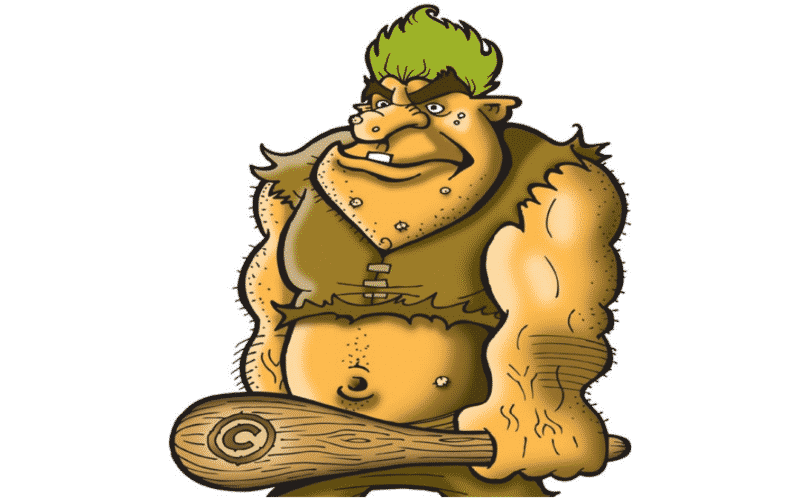
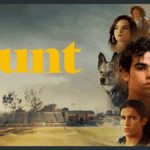

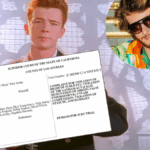

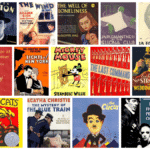
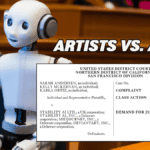
5 comments
Re the CASE Act, it’s notable that one of the three recently appointed Copyright Claims Officers (i.e., judges) is Brad Newberg, the attorney then at McGuire Woods who is responsible for the harsh sanctions against Liebowitz. Newberg represented the defendant in Usheron v. Bandshell Artist Management, the SDNY/2d Cir. case referenced in the post:
https://copyright.gov/newsnet/2021/906.html?loclr=twcop
https://www.reuters.com/legal/transactional/2nd-circuit-affirms-nationwide-sanctions-against-copyright-attorney-liebowitz-2021-06-25/
Given his history, I doubt Newberg will have much patience with “trolls,” however defined.
Very interesting Ben – this is something I haven’t heard acknowledged by CASE Act critics.
I found this to be a really helpful article. It’s given me a number of ideas to write about when i eventually get my planned new blog up and running. Thanks for sharing such a good information with us , I hope you will share some more info about Copyright Act: Protecting Originality Of Artistic And Literary Works. Please keep sharing.
A copyright is an intangible and amortizable asset used as a legal right of authorship to publish a work.
Copyright is a form of intellectual property for which the creator gets the protection to his/her original creation like literary, artistic, dramatic, musical, cinematic works, etc.
Know More
Very well-written and amazing article.
Amazing article. Courts sending a clear message against copyright trolls is a win for everyone. It’s high time to protect genuine creators and put an end to those exploiting copyright laws for personal gain.